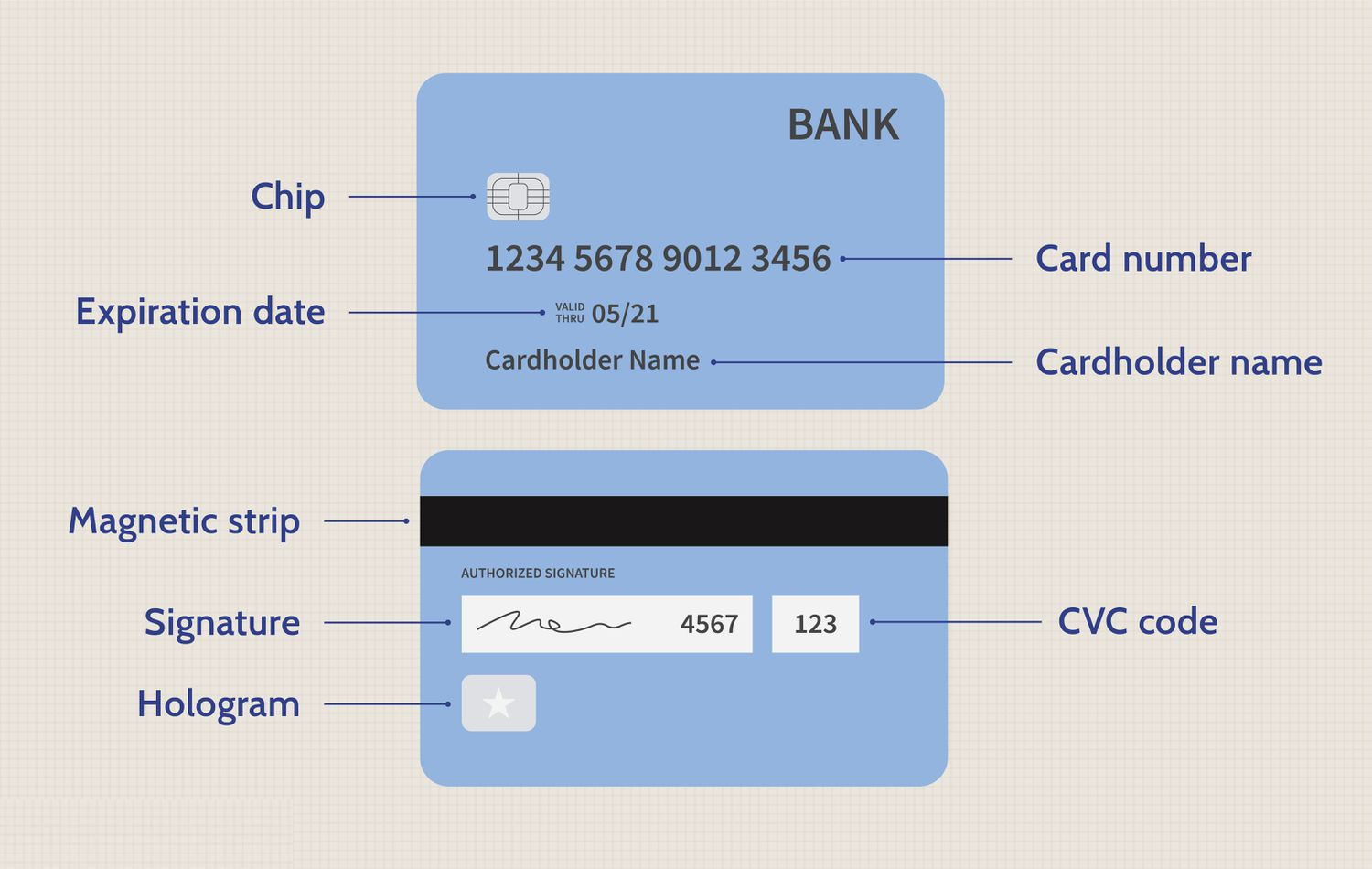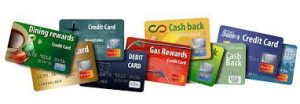What is a credit card?
A Comprehensive Guide to Credit Cards: What is a credit card? What They Are, How to Use Them and What Benefits They Offer:

Do you want to know What is a credit card? The Ans is: A credit card is a payment card that allows the cardholder to borrow money from a financial institution or bank to make purchases, pay bills, or withdraw cash. When a credit card is used to make a purchase, the card issuer (usually a bank) pays the seller on the cardholder’s behalf, and the cardholder is then obligated to repay the issuer, usually with interest Together. (What is a credit card?)
Credit cards usually have a credit limit, which is the maximum amount that a cardholder can borrow at any point in time. The credit limit is determined by the card issuer based on the cardholder’s credit score, income and other factors.
Credit cards often offer rewards programs such as cash back, points or miles for using the card to make purchases. However, credit cards also come with fees and interest charges, which can be high if the cardholder does not pay his balance in full and on time.
Credit cards (What is a credit card?) can be a useful tool for managing expenses and building credit, but it’s important for cardholders to use them responsibly to avoid debt and financial difficulties.
What is a Credit Card and How Does it Work?
A credit card is a type of payment card that allows you to borrow money from a bank or financial institution to make purchases. When you use a credit card to make purchases, you are essentially taking out a loan, and you must repay the borrowed amount with interest. In this Article we know about What is a credit card?:
How to Work a Credit Card?
Here’s we know about what is a credit card, how do credit cards work, types of credit cards
-
How to Applying for a Credit Card?
Applying for a Credit Card: To get a credit card, you need to apply for it at a bank or financial institution. The bank will evaluate your creditworthiness based on factors such as your credit history, income and debt-to-income ratio. If you meet the criteria of the bank, they will issue you a credit card.
2. How to Using a Credit Card?
Using a Credit Card: Once you have a credit card, you can use it to make purchases. You can use it to pay for goods and services at merchants that accept credit cards. You can also use it to withdraw cash from an ATM, but be aware that cash advances usually have higher interest rates than purchases.
3. What is Credit Limit?
Credit Limit: Every credit card comes with a credit limit, which is the maximum amount that you can borrow using the card. The credit limit is based on your creditworthiness, and may vary depending on the bank or financial institution.
4. How does the credit card billing cycle work?
Billing cycle: Credit card companies usually issue statements on a monthly basis. The statement will show your purchases, payments and interest charges. You must make at least the minimum payment by the due date to avoid late fees and penalties.
5. How interest rate works in credit card?
Interest: If you do not pay the balance in full by the due date, you will be charged interest on the balance. The interest rate may vary depending on the card issuer and your creditworthiness.
6. How Rewards Works in A Credit Card?
Rewards: Many credit cards offer rewards such as cash back, points or miles for every dollar you spend. These rewards can be redeemed for a variety of items such as gift cards, travel or merchandise.
Overall:
Overall, a credit card (What is a credit card?) can be a useful tool for managing your finances and building credit, but it’s important to use it responsibly and pay your balance in full each month to avoid paying interest and fees.
How Many Type of Credit Card?
Different Types of Credit Cards & Their Benefits:
There are many different types of credit cards available, each with its own unique features and benefits. Here are some of the most common types of credit cards:
1 – Rewards Credit Cards:

Rewards Credit Cards: These cards offer rewards such as cash back, points or miles for every dollar you spend. Rewards can be redeemed for a variety of items such as gift cards, travel, or merchandise.
2 – Travel credit cards:
Travel credit cards: These cards offer rewards and perks specifically for travel-related spending, such as airline miles or hotel points. They may also offer benefits such as travel insurance or free checked bags.
3 – Cash Back Credit Cards:
Cash Back Credit Cards: These cards offer a percentage of cash back on purchases made on the card. The amount of cash back offered may vary depending on the type of card and purchase.
4 – Balance Transfer Credit Cards:
Balance Transfer Credit Cards: These cards allow you to transfer high-interest debt from one or more credit cards to a new card with a lower interest rate. Some balance transfer cards offer 0% introductory APR periods, so you can pay off your debt without accruing interest.
5 – Secured Credit Cards:
Secured Credit Cards: These cards require a security deposit, which acts as collateral for the credit line. They are generally used by people with no credit or bad credit who want to build or rebuild their credit score.
6 – Business credit cards:
Business credit cards: These cards are specifically designed for small business owners and may offer rewards and perks for business-related expenses, such as office supplies or travel.
7 – Student credit cards:
Student credit cards: These cards are designed for college students and may offer low credit limits and educational resources to help students learn responsible credit habits.
8 – Co-branded credit cards:
Co-branded credit cards are store or brand credit cards (What is a credit card?) offered through traditional card issuers such as Chase, Citi or American Express. These may include airline credit cards that let you earn miles within a specific frequent flyer program or hotel credit cards that let you earn points within a hotel loyalty program. Some co-branded credit cards also partner with retail stores, although you can usually use them for non-store purchases as well.
9 – Store credit cards:
You can use the Store credit cards only at Target stores. You cannot use this card to get cash advance or transfer balance from any other card.
Understanding the Fees & Interest Rates Associated with Credit Cards
Credit cards come with a variety of fees and interest rates that cardholders should be aware of while using their cards(What is a credit card?). Understanding these fees and rates can help cardholders avoid unexpected charges and make informed decisions about their credit card usage.
Here are some common fees associated with credit cards:
- Annual Fee: Some credit cards charge an annual fee for the privilege of using the card.
- Late Payment Fee: If a Cardholder does not make his minimum payment by the due date, he may be charged a late payment fee.
- Overlimit Fee: If a cardholder spends in excess of their credit limit, they may be charged an overlimit fee.
- Balance Transfer Fee: When a cardholder transfers balance from one credit card to another credit card, they may be charged a balance transfer fee.
- Cash Advance Fee: If a cardholder uses his credit card to withdraw cash, he may be charged a cash advance fee.
How to Choose the Right Credit Card for Your Needs?
Choosing the right credit card (What is a credit card?) can be a challenge, as there are many different types of credit cards available with varying benefits and fees. Here are some tips for choosing the right credit card for your needs:
- Consider your spending habits: Look at your current spending habits to determine what type of rewards or benefits would be most helpful to you. For example, if you travel frequently, a card with travel rewards might be a good fit.
- Check for Fees: Consider the fees associated with the card, such as annual fees, late payment fees, and balance transfer fees. Look for cards with low or no fees, if possible.
- Look at the interest rates: If you plan to carry a balance on your card, consider the interest rates attached to the card. Look for a card with a low interest rate or 0% introductory rate.
- Research the rewards program: Check out the rewards program associated with the card. Some cards offer cash back, points or miles that can be redeemed for travel or other rewards. Consider whether the rewards program suits your spending habits and preferences.
- Check credit score requirements: Some credit cards require higher credit scores than others. Check the credit score requirements for the card to make sure you qualify.
- Read the terms and conditions: Read the fine print in the credit card agreement to understand the terms and conditions of the card. Pay attention to things like the grace period, how disputes are resolved, and how rewards are earned and redeemed.
By considering these factors, you can choose a credit card (What is a credit card?) that suits your needs and helps you reach your financial goals. Remember to use your card responsibly and pay your balance in full and on time each month to avoid fees and interest charges.
Managing Your Credit Card Responsibly & Building Good Credit History:
Managing your credit cards (What is a credit card?)responsibly is important not only to avoid fees and interest charges but also to build a good credit history. Here are some tips to manage your credit cards responsibly and build good credit:
- Pay on Time: Always make at least the minimum payment on time every month. Late payments can negatively affect your credit score and result in late fees.
- Pay in Full: If possible, pay your balance in full each month to avoid interest charges.
- Track Your Spending: Track your spending and stay within your credit limit to avoid over-limit fees and potential damage to your credit score.
- Use credit wisely: Use your credit card for purchases you can pay for, and avoid using it for cash advances or impulse purchases.
- Keep your balance low: Keeping your balance low in relation to your credit limit can help improve your credit score and reduce interest charges.
- Check Your Credit Report: Check your credit report regularly for errors or fraudulent activity.
- Avoid opening too many accounts: Opening too many credit accounts at once can have a negative impact on your credit score.
By following these tips, you can manage your credit cards (What is a credit card?)responsibly and build a good credit history. This can help you qualify for better loan terms, lower interest rates and other financial benefits in the future.
In this article we all know about What is a credit card? if you like this article please share this Post.
FAQ:
What is a Credit Card? What are the Credit Card Benefits?
what is credit card in simple words
credit card meaning in banking
